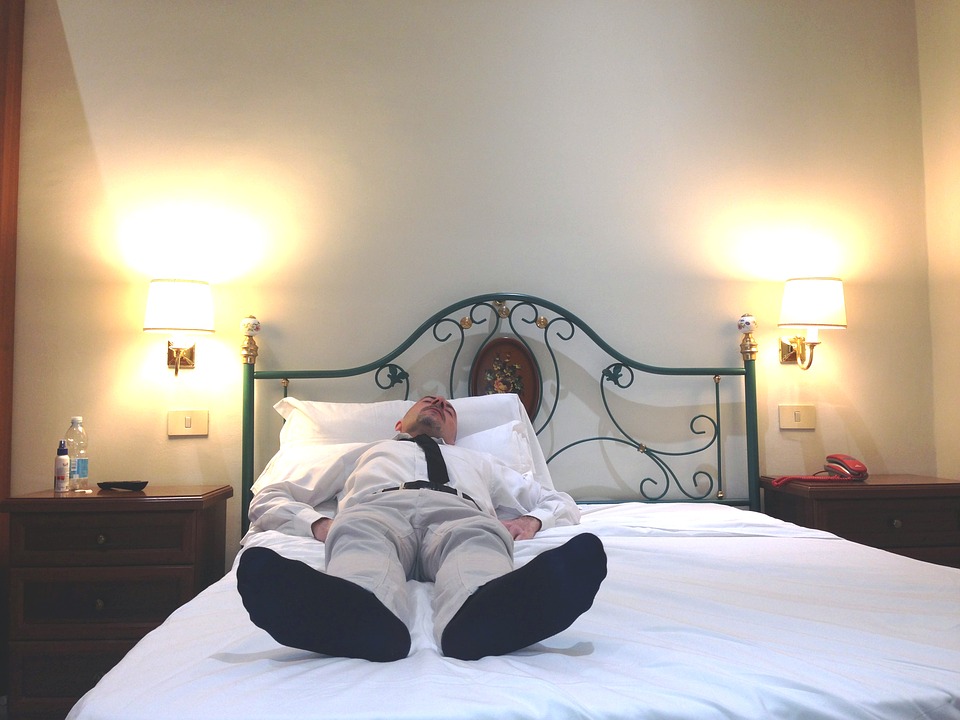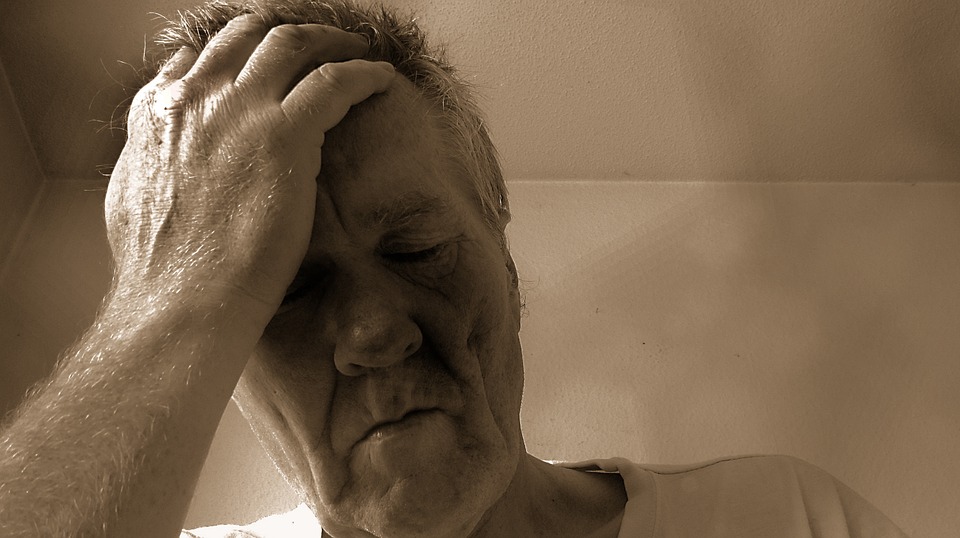“Controversial Lightning Process ‘helps children with chronic fatigue syndrome’,” reports The Guardian.
The story is based on a UK study investigating whether a treatment called the Lightning Process helped teenagers being treated for chronic fatigue syndrome (CFS), also known as ME (myalgic encephalomyelitis).
The study randomly split 100 young participants into two groups: those who received standard CFS/ME treatment and those who received the standard treatment plus the Lightning Process (LP).
LP treatment involved an intensive three-day group-therapy course aiming to teach participants how to use their brain to improve their body’s health.
Researchers found those who received the LP were more active, less tired and less anxious after six months. At 12 months, they also had improved depression scores and school attendance.
However, this therapy is not recommended by the NHS, which currently suggests behavioural and exercise therapy for people with CFS/ME.
There are an estimated 250,000 people affected by chronic fatigue syndrome in Britain, according to the ME Association charity.
It’s not known what causes CFS/ME, but there are a number of theories, such as it being triggered by an infection.
Living with the condition can be difficult, with extreme tiredness and other symptoms making everyday activities challenging.
As well as support from family and friends, it might also be useful for people with CFS/ME to talk to others with the condition and perhaps find a local support group.
Where did the story come from?
The study was carried out by researchers from the University of Bristol and the University of Nottingham in the UK. It was funded by the National Institute for Health Research and two charitable trusts: The Linbury Trust and The Ashden Trust.
The study was published in the peer-reviewed medical journal Archives of Disease in Childhood, part of BMJ Journals, and is free to read online.
The media reporting of this study was generally accurate, but the Daily Telegraph’s suggestion that the therapy helps children get back to school cannot be certain – there are a range of possible explanations for why children in the LP therapy group had better school attendance.
What kind of research was this?
This was a randomised controlled trial involving teenagers who had been diagnosed with CFS/ME. They were randomised to receive either usual care, or usual care plus the LP.
The LP is a therapy developed from osteopathy, life coaching and neurolinguistic programming (a behavioural psychotherapy that “retrains the brain”), and is used for a variety of conditions.
CFS/ME is a long-term illness with a wide range of symptoms, the most common being extreme tiredness.
It can also cause sleep problems, concentration problems, muscle or joint pain, headaches, a sore throat, flu-like symptoms, feeling dizzy or sick, or a fast or irregular heartbeat.
Current accepted treatments in the UK health service include cognitive behavioural therapy (CBT); a structured exercise programme called graded exercise therapy; and medication to control pain, nausea and sleep problems.
What did the research involve?
The researchers randomised 100 children aged 12 to 18 with diagnosed CFS/ME to receive either specialist medical care (SMC) or SMC plus the LP, and followed them up at 3, 6 and 12 months.
There were 51 participants in the SMC-only group. The SMC focused on improving sleep, and using activity management to establish a baseline level of activity (including school attendance, exercise and social activity) that was then gradually increased.
Sessions were delivered by professionals such as doctors, psychologists and physiotherapists. The number and timing of sessions were agreed with the teenager and their family.
There were 49 participants in the SMC-plus-LP group. In addition to the same SMC, they attended an LP course consisting of three different sessions, lasting four hours each, on consecutive days. They attended in groups of two to five.
The first was a theory session looking at:
stress response
how the mind and body interact
how thought processes can be positive or negative
This was followed by a group session in which participants were asked to think about what they could take responsibility for and change.
The third was a practical session in which participants were asked to choose a goal they wished to achieve, such as being able to stand for a longer period of time. They were given different thinking strategies to perform before and during attempting to achieve the goal. They also chose a further goal, to be attempted at home.
Each participant was offered two follow-up phone calls.
Outcomes assessed were:
physical function, measured using the 36-Item Short-Form Health Survey Physical Function Subscale (SF-36-PFS)
quality of life using quality-adjusted life years (QALYs), measured using the EQ-5D-Y standardised instrument
fatigue, using the Chalder Fatigue Scale
pain, using the Visual Analogue Scale (VAS)
anxiety and depression, using the Hospital Anxiety and Depression Scale (HADS)
school attendance (days per week)
child’s use of health services, educational services or health-related travel, and other family costs, using a questionnaire
What were the basic results?
At six months after randomisation, data from 81 participants showed that those in the SMC-plus-LP group were:
More active
They had better physical function compared with the SMC-only group according to the SF-36-PFS scale of 0 to 100, where lower scores indicate worse physical function. The SMC-plus-LP group’s average increased from a baseline of 53 to 81.7, and the SMC-only group’s increased from 56 to 70.2 (adjusted difference in means 12.5, 95% confidence interval [CI] 4.5 to 20.5).
Less fatigued
They had less fatigue, scoring 14.4 compared with 19.8 in the SMC-only group on a scale of 0 to 33, where higher scores indicate more fatigue (adjusted difference in means 4.7, 95% CI 7.9 to 1.6).
Less anxious
They had greater improvement in anxiety symptoms as measured by the HADS (scored from 0 to 21, with higher scores indicating worse symptoms) than the SMC-only group. The SMC-plus-LP average score was 6.1, compared with 9.0 for the SMC-only group (adjusted difference in means 3.3, 95% CI 5.6 to 1).
At 12 months after randomisation, data from 79 participants showed that the SMC-plus-LP-group were:
More active, less fatigued and less anxious
They still had better physical function, less fatigue and improved anxiety symptoms compared with the SMC-only group.
Feeling better
The SMC-plus-LP group also had greater improvement in depression symptoms on the HADS – scored from 0 to 21, with higher scores indicating more-severe symptoms (adjusted difference in means -1.7, 95% CI -3.3 to -0.2).
Attending school more often
School attendance, as measured by attendance in the previous week, was better for the SMC-plus-LP group, at 4.1 days on average, than the SMC-only group’s 3.1 days (adjusted difference in means 0.9, 95% CI 0.2 to 1.6).
How did the researchers interpret the results?
The researchers concluded: “This is the first randomised trial investigating the effectiveness of the LP for any condition. It is the first trial that has demonstrated the effectiveness of an intervention other than CBT for paediatric CFS/ME.
“The addition of the LP to SMC improved physical function at 6 and 12 months in adolescents with CFS/ME and this difference increased at 12 months.”
Conclusion
The results from this very small randomised controlled trial showed that people having LP therapy in addition to usual CFS/ME care had improved physical function, fatigue and anxiety symptoms at six months, and improved school attendance and depressive symptoms at 12 months.
However, there are a number of limitations to this research that need to be considered:
Participants in both groups improved, so both treatments were effective to some extent.
This was a very small trial, and the results analysis involved fewer than the 100 people recruited. It would need to be repeated in a much larger group to demonstrate more robust findings.
A number of outcomes were looked at, so it was very likely that some of them would return positive findings by chance – the improvements might not have been due to the LP therapy.
Participants were not blinded – they were aware of the group they were in; therefore, their self-reported outcomes might have been biased. They may have been more likely to report positive outcomes because they knew they were getting additional therapy in the LP group.
Of all those eligible to participate in the trial, fewer than 30% agreed to take part. The reason why the majority didn’t want to is unknown.
As the LP therapy was given in addition to the usual CFS/ME care, it certainly cannot be suggested as a replacement for the current usual care.
There’s no single way of managing CFS/ME that works for everyone and, if you have the condition, you should be offered a treatment plan based on your symptoms. Your doctor should discuss all options with you and make you aware of any benefits and risks.




